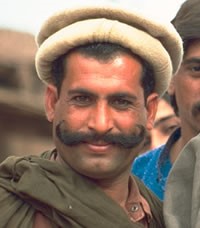Garwi, Kohistani in Afghanistan

Photo Source:
COMIBAM / Sepal
|
Send Joshua Project a map of this people group.
|
| People Name: | Garwi, Kohistani |
| Country: | Afghanistan |
| 10/40 Window: | Yes |
| Population: | 2,200 |
| World Population: | 2,200 |
| Primary Language: | Gawri |
| Primary Religion: | Islam |
| Christian Adherents: | 0.00 % |
| Evangelicals: | 0.00 % |
| Scripture: | Portions |
| Ministry Resources: | No |
| Jesus Film: | Yes |
| Audio Recordings: | No |
| People Cluster: | South Asia Muslim - other |
| Affinity Bloc: | South Asian Peoples |
| Progress Level: |
|
Introduction / History
The Kohistani tribes live along the upper banks of the Swat and Panjkora Rivers in northern Pakistan, with a few such as the Garwi in Afghanistan. Today, there are several different ethnic groups living in the Kohistan region that are subgroups of the Kohistani people. They include the Turvali, the Bateri, the Galo, the Rajkoti, the Garwi, and the Kohistani themselves. The tribes speak several distinct Dardic dialects, but their main language of communication is Pashto, the language of the dominant Pashtun ethnic group. The Pashtun have dominated the Kohistani for years, either buying their land or forcing them out with violence. The Kohistani have been described as a powerful, well-built, brave, but quiet people.
What Are Their Lives Like?
The Kohistani tribes are located in the narrow valleys formed by the tributaries of the Indus, where irrigation is possible. Since the Indus River flows through a steep rocky gorge, it is useless for irrigation. The people are primarily farmers and shepherds. They plant grain on terraced fields and use oxen for plowing. There is very little rain, so the crops are irrigated by water channels known as kuhls, which require constant and skillful management.
In irrigated areas, the Kohistani raise barley, wheat, maize, millet, and rice, supplemented by potatoes and a variety of other vegetables. Since they can only grow one annual crop, the people rely on the "transhumant" herding of their dairy goats and cattle. This means that they transfer their livestock from one grazing ground to another with the changing of seasons. During the summer months, they leave their permanent villages and drive the cattle, goats and sheep to alpine pastures.
The surrounding mountain ranges tend to isolate the Garwi Kohistani. Most of their settlements exist as small independent communities, located at altitudes between 1,000 and 4,500 meters. Families usually have houses in four or five different locations at the higher altitudes. Only in the winter do they live together in their compact villages, which lie along the rivers.
Garwi villages are made up of several lineages. In addition to farmers, a village population normally includes blacksmiths and carpenters who are bilingual in Pashto. There are also a number of tenant farmers and hired farm laborers.
The Garwi generally practice endogamy, meaning that they only marry within their own groups. Their societies are also patrilineal, which means that the line of descent is traced through the males.
What Are Their Beliefs?
Around 1000 A.D. , the Islamic religion spread through the region. At that time, the Garwi Kohistani converted from their polytheistic Aryan beliefs to Sunni Islam.
Traces of traditional, pre-Islamic beliefs still linger in a few areas. Some of the Kohistani tribes practice shamanism. They believe that there is an unseen world of gods, demons, fairies, and ancestral spirits. They depend on shamans (priests or priestesses) to cure the sick through magic, communicate with the gods, and control events.
What Are Their Needs?
Afghanistan is closed to Christianity and is opposed to the presence of missionaries. Fervent intercession can help turn the hearts of the Garwi people toward the Savior.
Prayer Points
Pray for the Lord to provide for their physical needs through adequate rain as a testimony of his goodness and sovereignty.
Pray this will be the decade where there is a huge Disciple Making Movement among the Garwi that will affect all families and clans.
Pray for them to have an openness to salvation through the grace of Jesus Christ.
Pray for persons of peace among the Garwi people to welcome Christ's ambassadors.